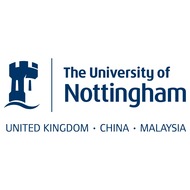Windows on war : Soviet posters 1943-1945
(View Complete Item Description)See the largest collection of Russian WWII propaganda posters outside the former Soviet Union in this video with Professor Cynthia Marsh April 2009 Suitable for Undergraduate study and community education Professor Cynthia Marsh, Professor of Russian Drama and Literature, Department of Russian and Slavonic Studies Professor Cynthia Marsh began the study of Russian after leaving school, by taking an intensive course to A-level at the then Holborn College of Law, Languages and Commerce, in Central London. She then went on to gain BA hons Russian (first class) at the University of Nottingham and spent a year at the School of Slavonic and East European Studies, University of London, completing an MA Area Studies: Russia, before going on to full time research there on the relationship between poetry and painting in the work of the Russian poet Max Voloshin. This research culminated in a PhD, entitled M.A.Voloshin: Artist-Poet: A investigation into the synaesthetic aspects of his poetry (awarded in 1979.) In 1972, after teaching Russian literature part-time on the University of London External BA honours course at Holborn, Professor Cynthia Marsh was appointed as a lecturer at Nottingham, and subsequently appointed senior lecturer and then Professor of Russian Drama and Literature. She served as head of department of Russian and Slavonic Studies from 2005-2006, and then from 2007- 2009. In 2002 she was awarded a Lord Dearing Award for Outstanding Teaching by the University and subsequently became a Member of the Higher Education Academy. She currently teaches modules on Russian theatre and Russian drama and her research interests continue to focus on Russian theatre, publishing mainly on Chekhov and Gorky.
Material Type: Lecture




















